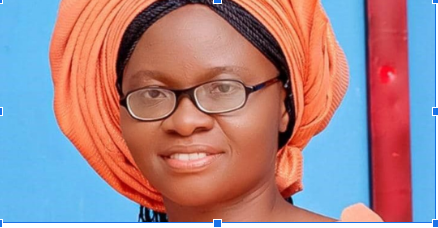Olakulehin Dami’s Journey of Finding Purpose in Disability

|
Getting your Trinity Audio player ready...
|
Damilare Mary Olakulehin lectures at Sub-Saharan Africa’s number one institution of special education— the Federal College of Education (Special), Oyo, Nigeria. She is the National Secretary of the Deaf Women Association of Nigeria (DWAN). Dami holds a B.A. in Philosophy and a Master’s in Educational Management (Planning and Policy), among other professional qualifications. Dami has a predilection for framing her disability within a concept of “Divine Fate”—the idea of a “God factor” working through the maze of disability to accomplish a greater purpose.
Dami tells her story
I was born on May 7, 1984, in Ikeja, Lagos State, Nigeria. The early stages of my life were very impactful—the family love, the fun, the usual sibling rivalries, and togetherness. My dad was strict, but my mom brought the balance. My hearing loss began at age 12, precisely on June 16, 1996, when I contracted measles. It was gradual and went unnoticed until three to four years later, when I got a proper diagnosis.
Mom was heartbroken when the diagnosis revealed that my deafness was irreversible. But being a resilient woman, she quickly braced up to the challenge. She rallied my sisters behind me. My younger sister gave up her dream of full-time university education after Mom clarified that family finances couldn’t support two children at the university simultaneously. So my sister opted to study part-time while working. She used to send money to support my university education. I believe I got the best family support a deaf child could have. My family was a real blessing.
Deafness brought rude disruptions to my previously flourishing social world—loss of friends, fear of failure, becoming the subject of jests, and weakening ambition. In my younger days, family was the backbone, but I couldn’t remain in their comfort zone forever. I recall:
I can’t say that I adapted during those early days, because my immediate family did not act like deafness was a disease, so I had the confidence to continue living.
However, the moment of reality came when I left home, and the narrative shifted: Being away from the covering of family stripped me of confidence, and the true impact of deafness hit me. I became isolated among friends and sometimes among family. My schedules and movements were greatly restricted. Before deafness, I was the social butterfly visiting friends in their homes. I dreamed of becoming a doctor, but in SS1, I failed all the core sciences, which robbed me of confidence. I stayed back home for five years, poring over textbooks in a fruitless struggle to master math and physics. At the time, any man who asked me out had to prove his love by buying me a textbook.
In those years, prior to learning sign language, I had the privilege of attending many seminars where speakers talked about how to identify and pursue purpose. But I could only hear bits and pieces, so I didn’t realise I should be pursuing expertise in my God-given gifts. Growing up, singing and writing had always been my thing—I should have let tough physics and math be.
My break came when the university’s first-year results were out, and I was not just the leading student in my department but leading by a wide margin. Suddenly, coursemates became friendly. I became a star student—almost forgot I was deaf. This phase taught me that with just one or two people to cheer you on, you can take on the world.
This article was first published on bonewss.ng




